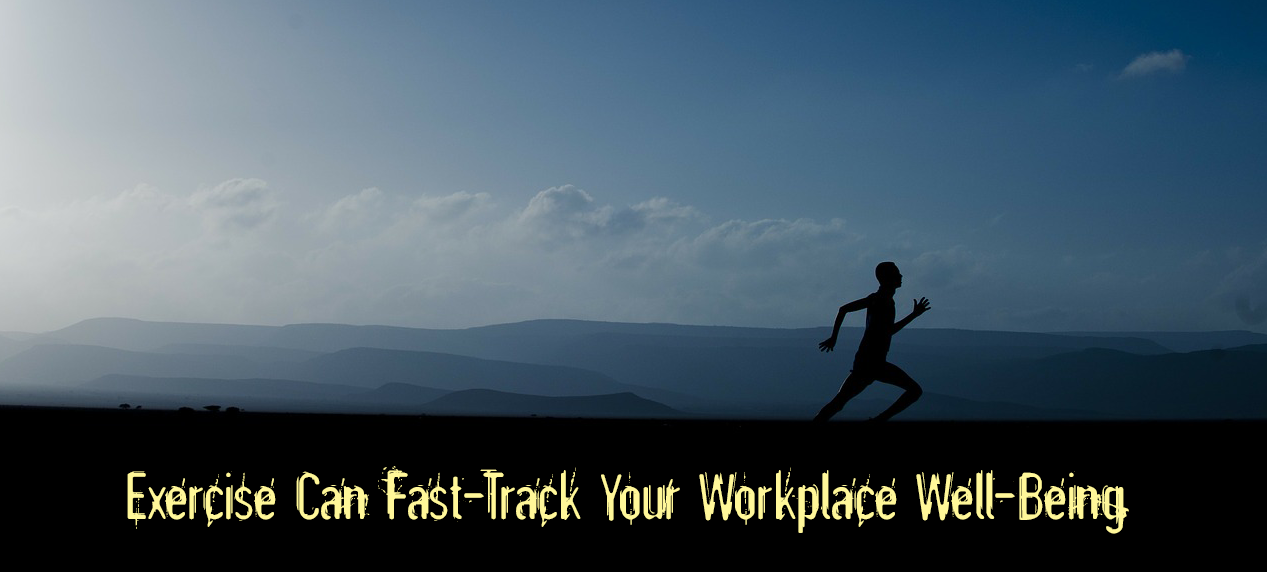Exercise Can Fast-Track Your Workplace Well-Being – Here’s How
Exercise has been found to reduce stress, increase positive mood, decrease anxiety and alleviate depression. But you may not know that the emotional well-being associated with exercise is also linked to key attributes that can help us while we work.
One of the most established of well-being frameworks (PERMA) states that of the many ways to experience happiness, five areas are most important: positive emotions, mental engagement, strong relationships, meaning in life and accomplishing goals. At face value, achieving all five may seem a colossal task. But many activities from tennis to triathlons, squash to swimming, can help us clinch all five at once. Evidence suggests that, as a result, we are more likely to avoid job burnout, sleep more easily and be more engaged at work.
1. Positive emotions
The “runner’s high” is at the peak of positive emotion. While this euphoric feeling is most typically linked to pounding the pavements, it can be experienced via any activity which works both muscles and heart.
The high comes from endorphins – the body’s natural painkiller – being made available in the areas of the brain which process mood and emotion. Understood as an evolutionary advantage, the high enables us to keep moving even when our muscles are tired, and even a short burst of this positive feeling can help us feel more energised. So next time you’re feeling low, try squeezing in some physical activity around work. It could give you a morning boost or stave off the post-lunch crash.
2. Mental engagement
Being in the zone is no easy task in a distracting workplace. Scientifically known as “flow”, this engagement level is the optimal amount of challenge required for personal growth. The Goldilocks of arousal, flow occurs when a task is sufficiently difficult to avoid boredom, but not so hard that we become overwhelmed. The flow experience is associated with decreased activity in the posterior cingulate cortex – an area of the brain responsible for our sense of self. So flow literally allows us to lose ourselves in the moment.
Physical activities which provide a just-manageable challenge are great for getting into flow. Even better are water-based sports which prevent the use of distracting technology, like sailing, swimming or rowing. Detaching from work in this way gives us time to recharge, meaning we can return with maximum productivity.

3. Strong relationships
While competitive sport can seem cut-throat, the shared pain of limit-busting events can stimulate compassion, and the more we suffer personally, the better we empathise with others. This not only strengthens our social skills, but also manifests in directing greater kindness to ourselves. Research indicates that self-compassion is a more effective strategy than self-criticism when we face difficulty. So, practising kind self-talk during sport can enable a more positive response to previously unbeatable workplace challenges.
4. Meaning in Life
A philosophically foggy concept, meaning in life has been scientifically pinned down as having three components: purpose (core goals and aspirations), significance (impact beyond the trivial and immediate), and coherence (understanding own values and life story). Meaning in life can provide a stable foundation when we face adversity, and helps us to make sense of troubling events. Importantly, some studies have found that a stronger sense of purpose is associated with moving more.
5. Accomplishments
The value of feeling competent and successful is well known, but greater attention has recently been devoted to the manner in which we interpret success. Research into growth and fixed mindsets suggests that whether we believe ability can change (growth) or not (fixed) is central to our well-being.
Those with a growth mindset are more likely to work on developing their skills, embrace feedback as an opportunity to learn, and use setbacks to adapt and thrive. On the other hand, those with a fixed mindset fear failure, take feedback personally, and are discouraged by bumps in the road.
But this can change. Researchers have found that a person’s mindset can be influenced by something as simple as greater self-awareness. All kinds of physical activities can objectively show us we can achieve goals that at first seemed out of reach. You might think that you’ll never be able to lift a certain weight, for example, but persist, and you will see how strong – both mentally and physically – you truly are.
You don’t need to be super fit, or even a regular gym-goer to benefit from the well-being perks that come with exercise. Getting active a few times a week can be enough to not only transform your physical fitness, but also boost your mood and performance, in and outside of work.![]()
Rhi Willmot, PhD Researcher in Behavioural and Positive Psychology, Bangor University
This article is republished from The Conversation under a Creative Commons license. Read the original article.
know someone who would be interested in reading this article? Share this page with them.



New! Comments
Have your say about what you just read! Leave me a comment in the box below.